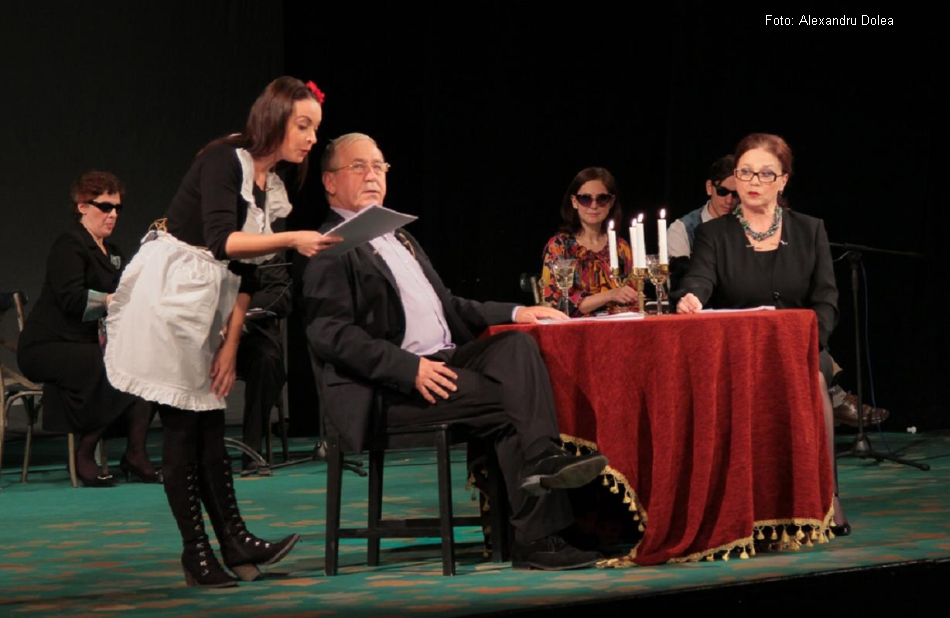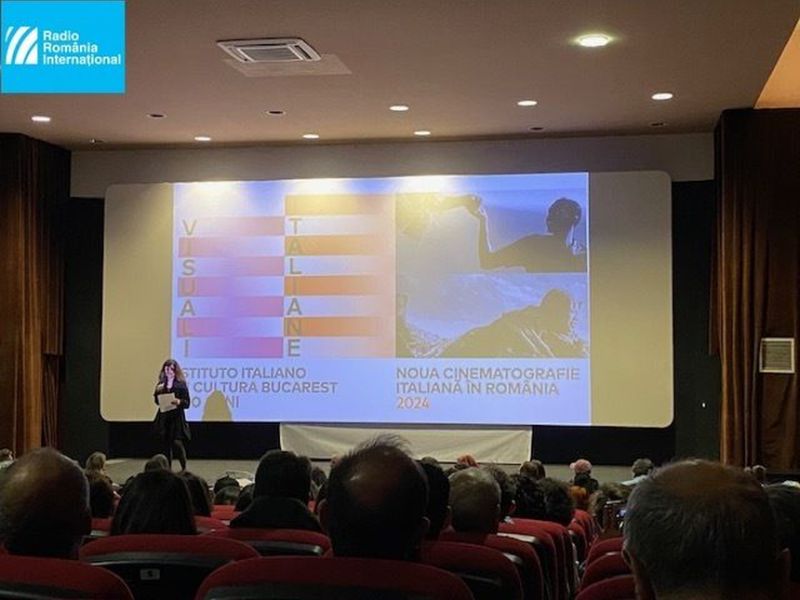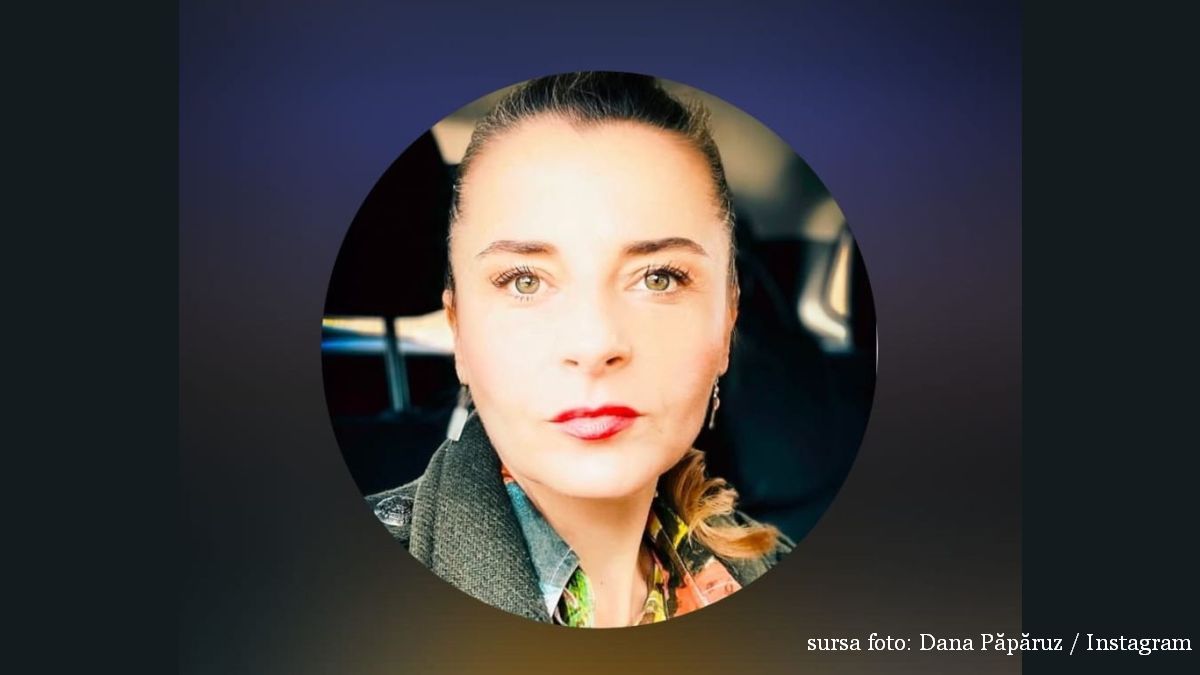Grand Prix Nova International Radio Drama Festival
The Romanian Radio Broadcasting Corporation aired its first drama production on 18th February 1929. Entitled “What the Village Knew, the piece was written by Ion Valjan and performed by Maria Filotti and Romald Bulfinski from the National Theatre in Buch

Luana Pleşea, 26.10.2013, 14:29
Attila Vizauer, the editor-in-chief of Radio Romania’s drama department explains: “It’s a tribute to the people who, in 1928 and 1929 had the courage to innovate and create a new means of mass communication and a new genre, namely radio drama.”
In those early days, radio plays were produced and aired live before a live audience. It all happened in the big radio concert hall, which brought together actors, sound engineers and the audience. As a tribute to those times, an adaptation of the play “What the Village Knew”, now called “What the City Knows”, was staged at the Comedy Theatre in Bucharest before a large audience. Here’s the director of the play, Mihai Lungeanu, speaking about this “visual” encounter of the public with radio drama:
Mihai Lungeanu: “The spectator, participating in the theater act, is faced with a sort of chemistry, which cannot be found just anywhere, because one never knows what happens in the studio. We tried to bring some of that atmosphere of creation, of improvisation that we build in the recording studio, in a way to reproduce the energy of those who 85 years ago, for the first time read out a play that reached the audience as a type of radio drama. It was for the first time that the listener was faced with just voices representing characters, feelings, a moral, stories told right into the microphone, unmitigated, without alternate takes, without being able to fix errors or to enrich the message in any way.”
The first Grand Prix Nova Radio Drama Festival was organized by Radio Romania in Bucharest between September 30 and October 5, and its theme was innovation in radio drama. It was held under the high patronage of Crown Princess Margareta of Romania, and it was scheduled to coincide with the 85th anniversary of Radio Romania.
Attila Vizauer, the head of Radio Romania’s radio drama department said he was pleasantly surprised at how successful the festival was. Here is Attila Vizauer telling us more about it: “Each step of making this festival has been an adventure, but one which ended on a happy note. After we had designed the project, we were green lighted by the board of Radio Romania. In the following stage we selected Europe’s most important radio drama professionals and we invited them to sit on the jury of this festival. We had the great pleasure of receiving enthusiastic answers. The next stage was registration. The answers were timid at first. The first entry was a piece from Vietnam, then one from Ukraine. Little by little, we had more, and we had to extend the registration deadline by 15 days, in order to be able to include everyone. We had 25 production companies from 22 countries, with 56 shows, and that was after the preliminary selection. Then came the festival. The applicants sent not only their materials, they came here in person, they were present at every audition, at every debate. We had meetings to debate the shows, the themes that the festival planned on promoting. We discussed the role of innovation in the field of radio drama, the trends in this art genre, all of these were topics debated as part of the festival.”
The jury, made up of renowned professionals, was presided by Nils Heyerdhal, chair of the Norwegian Academy for Language and Literature and former head of the Radio Drama Department with Norway’s public radio.
Here is Nils Heyerdhal with details on the festival in Bucharest: ”What strikes me for instance is that many of the producers and the radio stations try to distribute the radio plays in new ways, not only through radio but through the Internet, opening to social media, talking about the products, getting groups form on the Internet and so forth. Of course that’s a new way of distributing our work and of course there we will meet young people. Well, because radio drama is a rather new genre, it was born with the radio in the 1920s. It has its old roots, but it is more known to older audience, who, when they were children they used to listen to radio, to radio plays, but then came television and took over. And so, the new generation do not have the same connection to our craft. So, we have to try to catch them. And of course it has to do with the content of the plays we are producing, but it also has to do with the form. We need shorter formats; older people are used to sit down and listen for a quarter of an hour or more than that to a play, but the tempo of younger people isn’t ike that. So, I think one of the new ways must be to try to make smaller productions, for instance series of ten, fifteen minutes, catching the new audience. That means the authors or the playwrights have to think them in other way. Not doing like Ibsen or Chekov…I mean playing for two hours or two and a half hours. You have to make themin smaller formats to adapt to what is more familiar for the young ones.”
Such tendencies have also been identified in Attila Vizauer’s play, ”Oh Dad, Poor Dad’, a Radio Romania production that ranked second in the Short Drama Section.
Attila Vizauer: ”I relied heavily on Petre Barbu’s text, on my directing skills and on the professionalism of sound director Mihnea Chelaru and music director Madalin Cristescu, but didn’t even dream of an award though.That wasn’t part of our mission as we were only focused on staging the festival in the best possible manner. The fact that we also got an award is a true joy and a gift.”
Nils Heyerdal, president of the jury of the Grand Prix Nova’s first edition has voiced hope that the Romanian public radio will continue to stage such events: ”I think it’s very important the Romanian radio invites to a new festival, where professionals can meet and discuss things like that. Of course, what we discuss very much is the future, how shall we attract new audiences, how shall we be relevant for the young ones.”





























